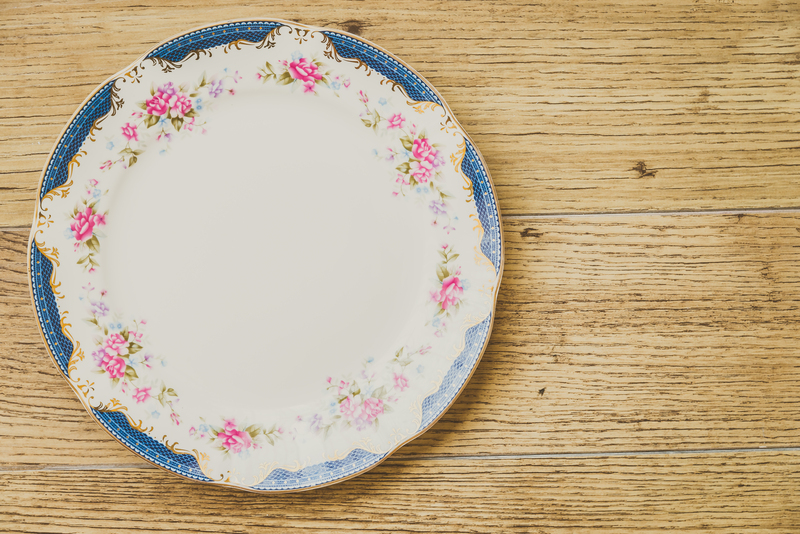Unlock Savings on Getting Rid of Bulky Waste Items
Getting rid of bulky waste items can be a sizable headache--and a hefty cost--for homeowners, renters, and businesses alike. Whether you are upgrading your furniture, renovating your home, or clearing out an office, bulky waste such as sofas, mattresses, appliances, and carpets can quickly clutter your space and stress your wallet. But there are ways to make disposing of large waste items less expensive and much easier!
This comprehensive guide will walk through a variety of strategies and cost-saving tips to help you unlock savings on bulky waste item disposal, all while staying environmentally friendly--because clearing out your space shouldn't mean emptying your savings.
Understanding Bulky Waste: What Qualifies?
Before diving into strategies for discounted bulky waste removal, it's important to understand what qualifies as "bulky waste." Typically, this refers to large items that cannot fit in standard wheelie bins or general waste containers:
- Furniture: sofas, armchairs, tables, beds, wardrobes
- Appliances: washing machines, refrigerators, ovens, freezers, microwaves
- Mattresses
- Large carpets and rugs
- Garden waste: tree branches, large plant pots, sheds
- Electronics: TVs, computers, monitors
- DIY waste: doors, bathtubs, radiators
While some local councils or waste management services offer bulky waste disposal, these services can become costly--sometimes charging per item.

Why Can Bulky Waste Disposal Be So Expensive?
Disposal costs add up for a few reasons:
- Collection fees: Many councils and private companies charge for collection, especially for large items.
- Transportation: Bulky waste often requires special vehicles to move safely.
- Landfill taxes: Sending large items to landfill incurs government fees to discourage waste.
- Processing: Items may need to be dismantled or treated before disposal or recycling.
But don't worry--there are effective ways to minimize these costs and even dispose of bulky waste for free in many circumstances. Let's explore your options.
Cost-Effective Strategies for Getting Rid of Bulky Waste
1. Use Your Local Council's Bulky Waste Collection Service
Most councils provide a bulky waste disposal service. Some allow you to schedule a collection of items such as sofas, tables, or appliances. Fees and availability vary by area, but sometimes you may qualify for discounts or even a free collection if you meet certain criteria, such as being a pensioner or receiving benefits.
- Check your local council's website for up-to-date prices and eligibility for reduced rates or exemptions.
- Plan to dispose of multiple items at once--you may pay less per item by grouping bulky waste together in one collection.
2. Visit Your Nearest Recycling Centre
Recycling centres (or "tip"/"household waste recycling centres") allow residents to drop off large items without charge (proof of address may be required). However, you will need suitable transport and the ability to load/unload items yourself.
- Some centres have specific rules for types of items or may impose small landfill charges for certain waste, so always check ahead.
- Going to a recycling centre is a great option for saving money versus curb-side collection.
3. Donate or Sell Usable Items
One person's clutter is another's treasure! If your bulky goods are still usable, consider the following to unlock extra savings (or even make money):
- Donation: Many charities collect furniture and appliances for free. Think British Heart Foundation, Salvation Army, or local reuse networks. It's eco-friendly and doesn't cost you a thing!
- Selling: Use online marketplaces like Gumtree, Facebook Marketplace, or eBay to sell or offer items for free ('Freecycle'). Even worn-out appliances may have value for parts.
Tip: Some charity shops have size/condition requirements, so always check before arranging a pick-up.
4. Arrange For a Private Bulky Waste Collection
If council schedules are inconvenient, private waste removal companies offer flexible dates and can handle heavy lifting and even dismantling. Shop around for quotes--some offer package deals on multiple items or discounts for placing items outside for quick collection.
- Choose companies with clear "volume pricing" to avoid hidden fees.
- Ask if they recycle collected items, reducing environmental impact and sometimes cutting costs.
5. Hire a Skip for DIY or Major Clear-Outs
For major renovations or when clearing several bulky items, a skip might be the most cost-effective option. Feel free to share with neighbours to split the price and maximize savings.
- *Mini-skips* cost less and are suitable for moderate volumes of bulky waste.
- Restricted items: Check what can go in your skip to avoid additional fees or fines.
6. Specialised Collection for Electricals & Appliances (WEEE)
Waste Electrical and Electronic Equipment (WEEE) regulations require responsible disposal of items like fridges, TVs, and computers. Check if your retailer offers a take-back scheme when buying a replacement--large retailers often remove old appliances for free or at low cost as part of delivery.
- Some councils run separate, free WEEE recycling events.
- Recycling centres accept many electricals--always remove batteries beforehand for safety.
7. Community Groups and "Man & Van" Services
Local social media or community groups frequently feature "man and van" services or informal waste removal options. Compare reviews and request proof of a waste carrier's licence to avoid fly-tipping and potential fines.
- Tip: Never use unlicensed waste collection--it could result in legal responsibility if waste is dumped illegally.
How to Maximize Savings When Disposing of Bulky Waste
You can maximize your savings on bulky waste removal by applying these savvy strategies:
- Consolidate collections: Dispose of multiple bulky items together to minimize per-item charges.
- Book in advance: Councils and companies may offer lower prices if you schedule in advance or during off-peak times.
- Go direct: If you're able, transport items to recycling centres yourself to avoid collection fees--a neighbor with a van could help split the cost.
- Utilize buyback schemes: Some retailers pick up old furniture or appliances upon delivery of new items, often for free.
- Be organized: Prepare items (dismantle beds, remove drawers, bundle carpets) to speed up collections--some contractors charge for time or difficulty.
- Check for subsidies: If you're elderly, disabled, or receive benefits, ask your council about free or discounted bulky waste removal services.
- Recycle and donate first: Only dispose of things that truly cannot be reused. It shrinks costs and helps your community.
The Benefits of Responsible Bulky Waste Disposal
Why take the time to find affordable bulk waste solutions? Because beyond saving money, how you dispose of large items has major environmental and social impact:
- Reduces landfill: Recycling or donating keeps usable items in circulation and cuts pollution.
- Supports charities: Donated goods raise vital funds for social programs.
- Protects the environment: Electronics contain hazardous substances--proper handling avoids soil and water contamination.
- Keeps your conscience clear: Using licensed waste handlers prevents fly-tipping and hefty fines (which can reach thousands of pounds).
Quick Reference Table: Disposal Options & Typical Costs
| Disposal Method | Cost Range | Pros | Cons |
|---|---|---|---|
| Council Collection | ?20-?60 per collection | Trusted, legal, convenient | Limited slots, can be slow |
| Recycling Centre Drop-Off | Usually Free | No cost, eco-friendly | Requires vehicle, manual lifting |
| Charity Collection/Donation | Free | Helps others, easy | Accepted only in good condition |
| Private Company | ?30-?150 (varies by volume) | Flexible, quick, handles heavy lifting | Can be expensive if few items |
| Skip Hire | ?80-?300/week | Good for large projects, share costs | Needs space, restricted items |
| Selling/Giveaway (Online) | Free or profit | Can make money, reuse | Time-consuming, not all items accepted |

Bulky Waste Disposal FAQs
How do I book a bulky waste collection?
Contact your local council or check their website. Private companies can be booked online or by phone. Be ready with a list of items and their sizes.
What happens if I leave bulky waste on the street?
Illegal dumping can result in fines of ?100s-?1000s. Always use licensed services or council collections and never abandon waste in public areas.
What items can't be collected as bulky waste?
- Hazardous materials (paint, chemicals)
- Car tyres or batteries
- Medical waste
- Building rubble in large quantities (may need specialist skip hire)
Can businesses use council bulky waste collections?
Most council bulky collections are for household use only. Businesses must use licensed commercial waste services.
Are there any national schemes for free bulky waste disposal?
At present, there is no consistent UK national scheme, but many charities offer free furniture and appliance collection. Some local councils provide free services for eligible residents.
Conclusion: Declutter Affordably and Responsibly
Whether you're moving, renovating, or simply decluttering, disposing of large items doesn't have to be costly. By using your local recycling centres, timing your council or private collections carefully, and reusing or donating wherever possible, you can unlock major savings on bulky waste removal--with minimal stress.
Remember: Every item you keep out of landfill saves you money and helps the planet. Ready to reclaim your space? Start searching for your local council's services, connect with charities, or find a reputable waste company. With a smart, informed plan, bulky waste removal can be both affordable and eco-friendly!